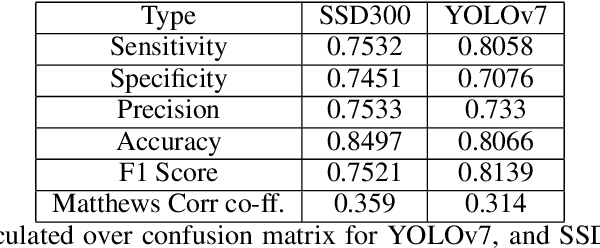Mahedi Hasan
FedRobo: Federated Learning Driven Autonomous Inter Robots Communication For Optimal Chemical Sprays
Aug 10, 2024



Abstract:Federated Learning enables robots to learn from each other's experiences without relying on centralized data collection. Each robot independently maintains a model of crop conditions and chemical spray effectiveness, which is periodically shared with other robots in the fleet. A communication protocol is designed to optimize chemical spray applications by facilitating the exchange of information about crop conditions, weather, and other critical factors. The federated learning algorithm leverages this shared data to continuously refine the chemical spray strategy, reducing waste and improving crop yields. This approach has the potential to revolutionize the agriculture industry by offering a scalable and efficient solution for crop protection. However, significant challenges remain, including the development of a secure and robust communication protocol, the design of a federated learning algorithm that effectively integrates data from multiple sources, and ensuring the safety and reliability of autonomous robots. The proposed cluster-based federated learning approach also effectively reduces the computational load on the global server and minimizes communication overhead among clients.
Generative AI like ChatGPT in Blockchain Federated Learning: use cases, opportunities and future
Jul 25, 2024



Abstract:Federated learning has become a significant approach for training machine learning models using decentralized data without necessitating the sharing of this data. Recently, the incorporation of generative artificial intelligence (AI) methods has provided new possibilities for improving privacy, augmenting data, and customizing models. This research explores potential integrations of generative AI in federated learning, revealing various opportunities to enhance privacy, data efficiency, and model performance. It particularly emphasizes the importance of generative models like generative adversarial networks (GANs) and variational autoencoders (VAEs) in creating synthetic data that replicates the distribution of real data. Generating synthetic data helps federated learning address challenges related to limited data availability and supports robust model development. Additionally, we examine various applications of generative AI in federated learning that enable more personalized solutions.
 Add to Chrome
Add to Chrome Add to Firefox
Add to Firefox Add to Edge
Add to Edge